Feel the Fear and Do It Anyway.
Fear is healthy. It is a necessary part of expanding our comfort zones and pushing boundaries. It’s an inherent part of the process when discovering what we are truly capable of.
It can also be paralyzing, culminating in panic, and ultimately limitation.
Feel the Fear and Do It Anyway. That’s the title of a book I read years back. That memory was spurred on as I write this sitting on a plane flying from Padang to Jakarta, just having finished up our Mentawais for First-Timers Surf Coaching Boat Trip.
It was a blast and it was an incredible experience to see a group of awesome surfers develop their understanding of surfing, and successfully expand their skill and surf comfort zones.
A statement I found myself reiterating on the coaching trip is that “Surf coaching, in reality, is mental & emotional coaching”.
Mindset, Fear, and Anxiety will be hurdles you inevitably face on your surf journey, yet I often see it untouched through the standard process of surf coaching. This is a huge fault in coaching in my opinion as it is an inevitable part of the process.
There needs to be an understanding of how to overcome surf fear. I want to give you some fundamental understanding of my current views on the subject. Here’s a perspective that I hope you consider and perhaps apply to your own growth as a surfer.
Fear, Surfing, and Skill Expansion
Pushing through fear is less frightening than living with the underlying fear that comes from a feeling of helplessness.
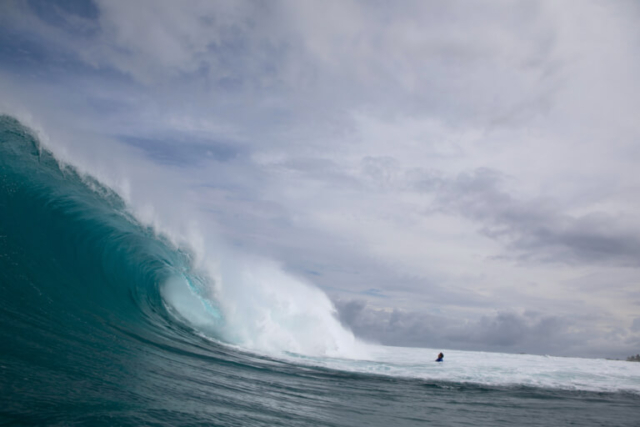
Fear is the Mind Killer (Dune fans!), and Fear is the Surf Killer.
Preparation, Awareness, & Exposure is how you can successfully deal with the inevitable Fear encountered when growing as a surfer.
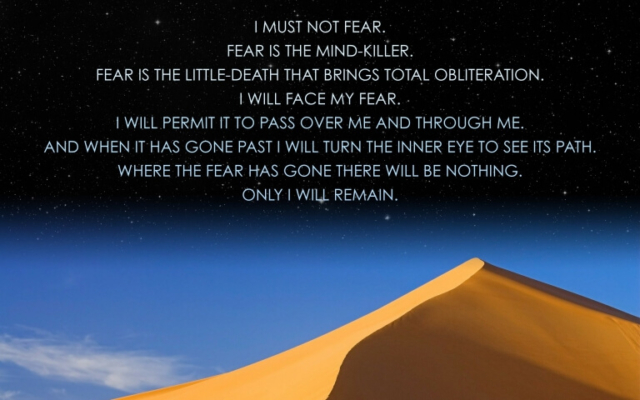
Personally imposed limitations, based on fear, are often a huge limiting factor in the growth of a surfer. The same can be said for our individual journeys through life as well. *I have deeply come to view surfing as a true reflection of our lives.
A prime example of self-imposed limitations halting the progression of surfing is the process of experiencing bigger, faster, and higher performance surf for the first time.
This is what we encounter frequently on trips to the Mentawais, and this same process applies to the spectrum of surfers. Me seeing a 10foot high-performance reef break and thinking “oh shit”, is the same mental process someone feels for the first time that they see Hollow Trees at good 5 foot (if that’s the ceiling of the current surf exposure).
Brains begin to scream with fear. “What-If” thoughts and scenarios stream through the brain at a rapid pace. It’s a survival instinct. Hardwired brain stuff going on here, which I’ll touch on shortly. Irrational fear and emotional response putting up the walls of what we can’t do! Emotion trumping cognition and spurring panic.
What I see on these trips is a critical need for managing fear and overcoming fear from a rational perspective, which can be inherently difficult, as fear overrides the cognitive thought processes. What is needed is a process to undertake before getting in the water so that when fear arises, it can be understood, and used to spur incremental growth.
Being able to temper reactions to fear opens the doors to being able to experience new and incredible scenarios in the ocean.
For me, the greatest trick to overcoming fear, especially in big waves, is the understanding and embodiment of the fact that I have total control over how I interpret and react to every situation I face in life. All of our experiences are a result of how we perceive what is happening around us, and in every moment of our life we have a choice to perceive them in a positive, or a negative way.
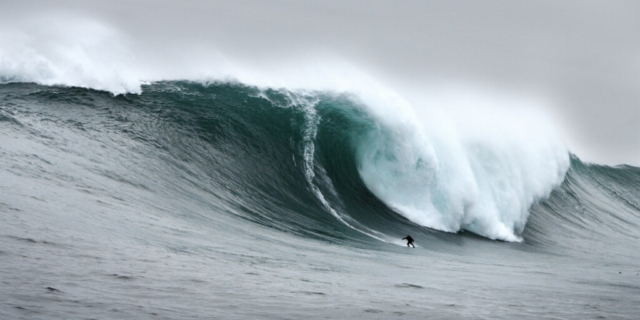
Myself and other coaches on our trips are often faced with situations where we have complete and full confidence in a surfers’ ability and skill levels to tackle a new break or swell size, yet we are faced with refusal to even enter the lineup, even if only to sit and experience the ocean.
Experience, or exposure, is a key piece of this Fear puzzle, which is why we often push for trip attendees to sit in the ocean to simply watch, feel, and experience.
*As I’m editing this, which is now while I’m in Sumba, I want to add another point. Yesterday morning I experienced first hand some of the biggest surf I’ve ever been in. Dudes on proper 9 foot guns, impact vests, and legit Indonesian 10 foot plus.
I had to deal with this entire process I illustrate above, and to be honest, I was fucking scared. My brain-scrambling with fear, yet my deep desire, and preparation of training and breathwork laying a foundation for me to rationally deal with the fear.
In the end, I got some absolute nuggets, and I’ve now expanded my comfort zone. I new realm of surfing awareness and ability. The journey will continue.
Without me rambling too much further, simply understand that there will be fear. Fear can be utilized, or it can halt coaching and growth.
The keys in my opinion to tackle the mental hurdles of surfing are adequate Preparation, Awareness, and Exposure.
Let’s Dive In. How To Overcome Surf Fears
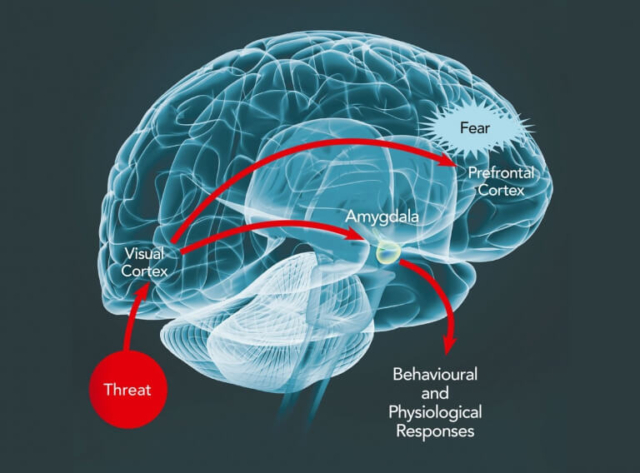
This fear is a natural reaction. Survival processes which are inherent in our deep reptilian brain, and basically hardwired into us genetically.
Surfing has true consequences, so at times fear is truly rational from that perspective, but there are irrational aspects to fear and their downstream mental effects. It’s those downstream effects that hinder the growth process
Amygdala hijack. Stealing your brain with fear is basically what that implies. The amygdala hijack is an immediate, overwhelming emotional response with a later realization that the response was inappropriately strong given the trigger. That’s what Wikipedia tells me is the actual definition.
I’ve seen this happen firsthand repeatedly. Just recently I nearly had to rescue a girl that was in surf that I would call solid 5 foot. She got nailed by a four-wave set.
Her longest hold down (I counted from the channel), was 4 seconds. That’s me properly counting “one one-thousand, two…”. I watched her scramble with fear, proceed to take exceedingly inappropriate and shallow breaths between big waves, and absolutely lose her shit with a fear of death, in a scenario that was far from life-threatening.
Her fear created panic, and panic is a terrible thing in the ocean. Yes, in her mind it was absolutely life-threatening, but in reality, was far from it.
Does she need more exposure? Yep. Should she have more awareness? Yep. Should she have more preparation and breath training?
Yep. After her the 4 wave set, during which she was getting washed to the channel, she was in full amygdala hijack. Frantic, no awareness of the surroundings, nearly hyperventilating, paying no attention to my instructions, and having an emotional response that far exceeded the actual trigger.
It became a dangerous scenario because she lost all awareness, and fear overtook all rational thinking processes.
Actual cognition, which would have had her realize that the threat was completely over, she simply needed to take a few recovery breaths to expel CO2 and raise O2, and casually paddle to the channel.
This is how fear can be inappropriate in its ratio to the actual threat, and make situations far worse than they are in reality.
1. Preparation
Do you have the actual skill required to push your skill level? Does your skill match the situation?
Disregarding fear and putting yourself into situations that far exceed your skill levels is simply stupid. Overreacting with fear and not pushing boundaries, even though they absolutely are within your skill level is doing yourself a disservice.
This takes a rational perspective and awareness on your part, but also of the coach if you have one.
- Do you have the fitness in place in case your leash snaps and you have to swim?
- Do you know the reef layout or rip positions in case you did need to swim?
- Are you comfortable in hold down scenarios? Have you trained for hold downs?
- Is the surf you’re looking at steps ahead of where you’re currently at in terms of skill? Or is it the next logical step?
- Is your equipment up for the surf?
These are questions you should be asking yourself when looking at new breaks, new surfing waves, and surf of larger size.
Preparation is simply laying the foundations so the inherent skill and safety is in place. This is necessary so that you can make logical decision making in a situation where that bastard fear is starting to yell from deep in your brain.
That bigger day I just had in Sumba carried a few wipeouts. Nothing gnarly, but some fairly heavy water. When I had to jump from the top of a lip and cannonball into the trough, I already knew what my next steps were. I was underwater prepping for my purge breaths. I had the preparation and experience in place to minimize danger and make effective decisions when it was needed.
If you want insight into Breath Training, start here: Breath Training for Surfers
There’s also a variety of lessons and techniques for Breath Work found in my Ocean Sports Performance Program.
2. Awareness
- Do you know what you’re doing? Honestly?
- Do you have the prerequisite knowledge, and preparation in place, to be acutely aware of the situation you’re placing yourself in?
- What is the layout of the reef?
- Have you surfed waves of slightly lesser size?
- Are you aware of your own skill set?
- Do you have the necessary surfing skill to be successful?
Awareness is very similar to Preparation, yet I view it as more of a logical inventory. Take for example all the idiot assholes that somehow make it out to Uluwatu on their soft-tops, between 4-foot set lulls. They have ZERO awareness and are in fact endangering themselves and others.
When I lived in Balian there were often ocean rescues of beginner surfers with no ocean awareness, being sucked out the massive rip. It honestly happens on a weekly basis. There is no Awareness of the situation they are placing themselves in, or of their skill.
Beginner surfers should develop acute awareness because the more aware you are, the more capable you are of being logical and rational.
Become aware of what you’re capable of. Ask yourself the hard questions, and also have the awareness to know when to pull the plug and simply watch from the shoulder. It’ll be great for expanding your awareness and ocean-reading abilities and increase your exposure.
3. Exposure
Remember that underlying all our fears is a lack of trust in ourselves.

Feel the Fear and Do It Anyway.
Exposure is Learning. Learning leads to Realisation, and hopefully to some type of Action. Action and Repetition will build Trust and Confidence.
Get amongst it! Sit in the ocean, watch big waves, feel the energy, and expose yourself to the scenarios that tickle that deep fear.
You’ll become more comfortable, more rationally capable, and become familiar with big waves of more consequence. You need this exposure to expand your comfort zones and to help dampen the fearful self-talk.
When I talk with big wave surfers, I always ask about what I term as Graded Exposure. Familiarity. Stepping stones. How’d they arrive at the point of surfing 20ft. death-bombs at The Right? What was in between? Which big waves used to scare them? What big waves scare them now?
If you’ve only surfed 3-4 foot beachies, you’re not suddenly going to be successful at an 8foot reef break. You need some Exposure and experience along the way. Gain more familiarity and comfort with big waves. The stepping stones of skill to build awareness, preparation, confidence, and skill.
A buddy actually joined me here in Sumba who attended our Mentawais Trip. To put it bluntly, the surf was far out of his league on the big day, but I pressed him to come into the ocean, to simply sit in the channel, see it, feel it, and experience the big waves.
I did the same for about 30 minutes before I finally paddled up and nabbed a proper one. After the session, he expressed that it was absolutely incredible for him to sit out there and see big waves like that firsthand.
You could feel them exploding on the reef, and erupting with a noise that you only know of if you’ve seen it and heard it.
He was exposing himself to new realms, feeling new energies in the ocean, and building more awareness. That’s the process.
Expose yourself to new situations, big waves, and sizes, with do so with Awareness and a rational perspective of safety.
What is big for you today may be a completely comfortable and fun size wave for you in a year from now. Get some graded exposure along the way. Join our surf trips!
What Did You Learn?
You sat in the lineup and watched surf that is a bit out of your comfort zone.
Maybe you went for a few and had some proper wipeouts, but came out a-ok.
You’ve experienced, expanded, and felt the fear creeping in.
What did you learn?
That’s the key to growth. Whether you were successful in your eyes, or how you judge success, what is truly relevant is that you expanded, and learned.
So what if you think you failed. Surfing progression is built on failure. What did you learn from that failure? What did you learn from tackling that fear?
Truly ponder that. Ask deeper Why questions, and learn from the process so that you can apply it to your growth as surfers, and human.
As I mentioned, surfing is a reflection of life. Grow, Learn, and Apply.
So maybe it is a good idea to Feel the Fear and Do It Anyway, if you have the Preparation, Awareness, and Exposure in place.
If this resonated with you, and you have a deep inherent drive to progress your surfing, you really should check out our Surf Coaching Trips.

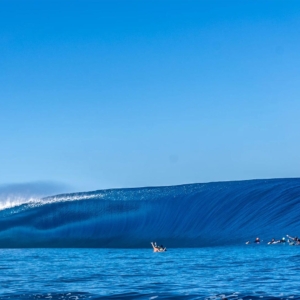
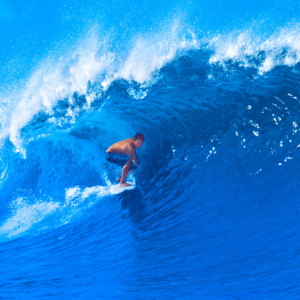
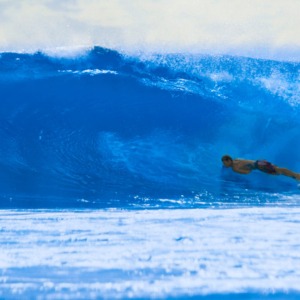
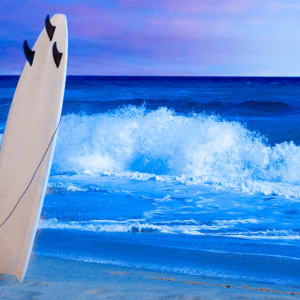
7 Comments